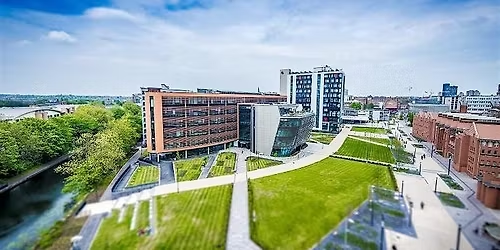
Advertisement
School of Geography, Geology and the Environment Research Seminar Series"Hypervelocity Impact Effects on Earth: Causes and Consequences"
Professor John Spray
Director of the Planetary & Space Science Centre, University of New Brunswick, Canada
Thursday 30 October 2025, 1.00pm-2.00pm,
Attenborough Film Theatre
The impact of asteroids and comets on planetary bodies in our Solar System has contributed to planet-building and planet-modifying processes throughout geological time, and it has influenced the evolution of life itself. The formation times of impact craters are fast (typically minutes) relative to the timescales of many geological processes (typically thousands to millions of years). Hypervelocity impact can cause intense shock loading resulting in melting, vaporization and even plasma formation in target materials. Further from ground zero, shock waves cause earthquakes, and local melting and solid-state phase transformations, with the creation of new structural states and mineral polymorphs. An overview will be presented with emphasis on impact cratering on Earth and the inner planets. Approximately 200 impact structures are known on Earth, which is a shadow of its original record. This paucity of craters is due to Earth being an active planet: the majority of past impact evidence has been erased due to plate tectonics, volcanic activity, burial and erosion. Nevertheless, valuable examples have survived: we will tour some of these and explore the intriguing products of hypervelocity impact as we strive to understand these extreme processes.
Professor John Spray is Director of the Planetary and Space Science Centre at the University of New Brunswick in Canada. He currently manages a research team focussing on investigating planetary materials, frictional melting, impact cratering mechanics, the geology of the Moon and Mars, and processes associated with hypervelocity impact and shock effects. John received his BSc in Geology from Cardiff University and his PhD in Earth Sciences from Cambridge University. He held the Canada Research Chair in Extreme Deformation and Planetary Materials from 2006-2018. He is a co-investigator on the science teams for NASA’s Mars Science Laboratory (MSL) and the ESA’s ExoMars missions. He was awarded the 2024 Barringer Medal for exceptional achievement in meteoritics.
More information: https://le.ac.uk/gge/events/research-seminars
Advertisement
Event Venue & Nearby Stays
University of Leicester, Informatics, Leicester, LE1 7, United Kingdom











